
If you’re looking to purchase private property in Singapore, you’ll need to understand the maximum loan tenure allowed. Loan tenure refers to the duration of time over which you’ll be making payments on your mortgage. The longer the loan tenure, the smaller your monthly repayments will be, but the more interest you’ll end up paying over the life of the loan.
For private properties in Singapore, the maximum loan tenure is 30 years, or until you reach the age of 65, whichever comes first. This means that if you’re 40 years old and looking to borrow money to purchase a private property, the longest loan tenure you’ll be able to secure is 25 years. It’s important to keep this in mind when you’re calculating your monthly repayments and determining your eligibility for a mortgage.
When you’re considering purchasing private property in Singapore, there are a number of factors to keep in mind. Understanding loan tenure is just one piece of the puzzle. You’ll also need to think about your eligibility for a mortgage, your financial commitments and calculations, the loan amount and downpayment details, interest rates and repayment plans, government regulations and cooling measures, types of properties and financing, CPF usage and government grants, and joint borrower and co-signing strategies. With all of these factors in mind, you’ll be better equipped to make an informed decision about purchasing private property in Singapore.
Key Takeaways
- The maximum loan tenure for private properties in Singapore is 30 years or until you reach the age of 65, whichever comes first.
- Loan tenure affects the size of your monthly repayments and the amount of interest you’ll pay over the life of the loan.
- When considering purchasing private property in Singapore, you’ll need to take into account a range of factors, including eligibility for a mortgage, financial commitments and calculations, interest rates and repayment plans, government regulations, and CPF usage.
Understanding Loan Tenure for Private Property

If you are planning to buy a private property in Singapore, it is essential to understand the concept of loan tenure. Loan tenure refers to the duration over which you are allowed to repay your housing loan. The maximum loan tenure for private properties in Singapore is 30 years or until you turn 65 years old, whichever is earlier. In this section, we will discuss the different aspects of loan tenure for private properties.
Defining Maximum Loan Tenure
The maximum loan tenure for private properties is set by the Monetary Authority of Singapore (MAS). According to MAS, the maximum loan tenure for private properties is 30 years or until you turn 65 years old, whichever is earlier. This means that if you are taking a housing loan for a private property, you can choose a loan tenure of up to 30 years. However, if you are already 35 years old or above, your maximum loan tenure will be reduced accordingly.
Private Property vs HDB Flats
It is important to note that the maximum loan tenure for private properties is different from that of HDB flats. For HDB flats, the maximum loan tenure is 30 years. However, if you are taking a housing loan for an HDB flat, you can choose a loan tenure of up to 25 years. This is because the remaining lease of the HDB flat is taken into consideration when calculating the loan tenure.
In conclusion, understanding loan tenure is crucial when taking a housing loan for a private property in Singapore. The maximum loan tenure for private properties is 30 years or until you turn 65 years old, whichever is earlier. If you are taking a housing loan for an HDB flat, the maximum loan tenure is 25 years.
Determining Your Eligibility
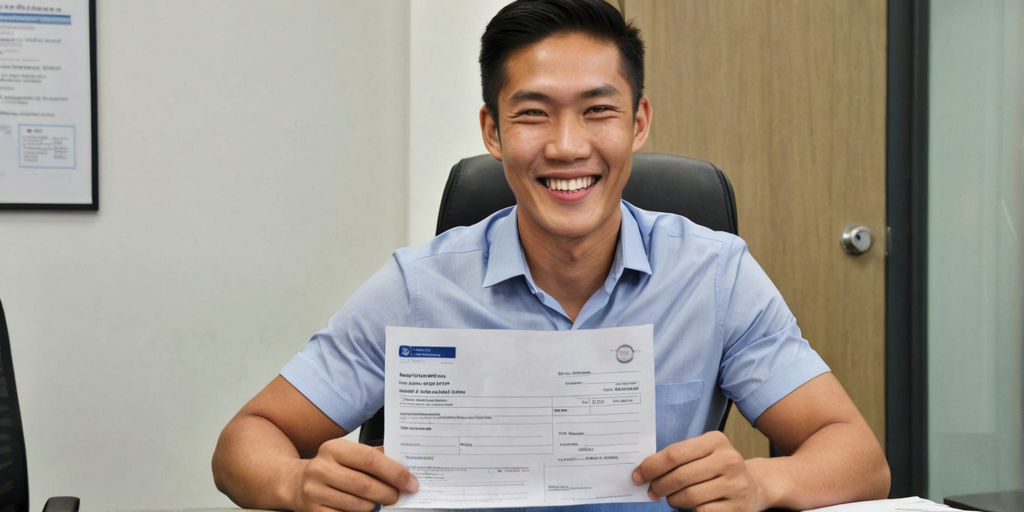
If you’re considering taking out a loan for a private property in Singapore, there are a few factors that will determine your eligibility. Here are some key things to consider:
Age and Income Factors
To be eligible for a private property loan in Singapore, you must be at least 21 years old. Additionally, your gross monthly income will be a major factor in determining how much you can borrow. The income-weighted average age of all borrowers will also be taken into account.
Loan-to-Value (LTV) Considerations
The loan-to-value (LTV) ratio is the amount of money you can borrow compared to the value of the property. For private properties, the maximum LTV ratio is 75% for the first loan, and 45% for subsequent loans. This means that you will need to have a significant amount of cash on hand to cover the down payment and other fees associated with buying a property.
It’s also important to note that the maximum loan tenure for private properties in Singapore is 35 years. This means that you will need to be able to make monthly payments for a long period of time. Be sure to factor in your current and future income when determining whether you can afford the loan.
Overall, determining your eligibility for a private property loan in Singapore will depend on a variety of factors, including your age, income, and the loan-to-value ratio. Be sure to do your research and speak with a financial advisor to determine whether taking out a loan is the right choice for you.
Financial Commitments and Calculations

If you are planning to purchase a private property in Singapore, it is important to consider your financial commitments and calculations. This includes understanding the Total Debt Servicing Ratio (TDSR) Guidelines and Mortgage Servicing Ratio (MSR).
Total Debt Servicing Ratio (TDSR) Guidelines
TDSR is a framework that calculates the percentage of your monthly household income that goes towards servicing your debts. This includes all your existing financial commitments such as credit card debt, car loans, and other loans. According to the Monetary Authority of Singapore (MAS), the TDSR limit is 60% of your monthly household income.
To calculate your TDSR, you need to add up all your monthly debt obligations and divide it by your monthly household income. If your TDSR exceeds 60%, you may not be able to get a home loan for your private property purchase.
Mortgage Servicing Ratio (MSR)
MSR is another framework that calculates the percentage of your monthly household income that goes towards servicing your mortgage loan. According to the MAS, the MSR limit is 30% of your monthly household income.
To calculate your MSR, you need to add up your monthly mortgage loan repayment and divide it by your monthly household income. If your MSR exceeds 30%, you may not be able to get a home loan for your private property purchase.
It is important to note that the TDSR and MSR limits are just guidelines, and banks may have their own criteria for loan approvals. It is best to consult with a financial advisor or mortgage broker to understand your financial commitments and calculations before making a purchase decision.
Loan Amount and Downpayment Details
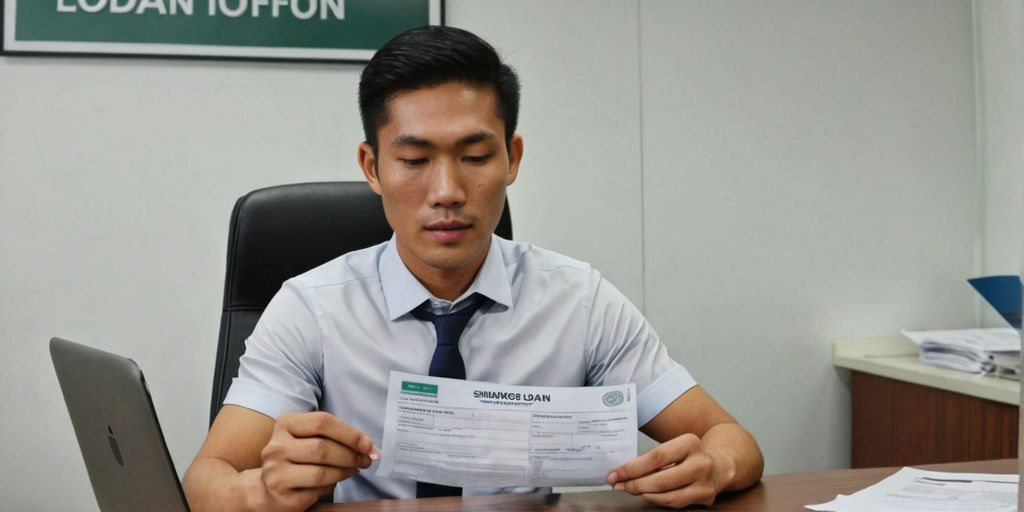
Calculating Loan Amount
When it comes to purchasing a private property in Singapore, you will likely need to take out a property loan. The loan amount you are eligible for will depend on a few factors, including the property’s purchase price, your income and credit history, and the loan-to-value (LTV) limits set by the Monetary Authority of Singapore (MAS).
To calculate the maximum loan amount you can borrow, you can use the following formula:
Maximum Loan Amount = Purchase Price x LTV Limit
For example, if you are purchasing a private property for $1,000,000 and the LTV limit is 75%, the maximum loan amount you can borrow would be $750,000.
Keep in mind that the LTV limit may vary depending on the property’s purchase price and tenure. For instance, if the property tenure is longer than 30 years, the LTV limit may be lower.
Minimum Cash Downpayment Requirements
In addition to the loan amount, you will also need to pay a downpayment when purchasing a private property in Singapore. The minimum cash downpayment required will depend on the property’s purchase price and whether it is your first or subsequent property purchase.
According to MAS regulations, the minimum cash downpayment required is as follows:
- 5% for the first $180,000 of the property’s purchase price
- 10% for the next $180,000 of the property’s purchase price
- 20% for the remaining amount of the property’s purchase price
For example, if you are purchasing a private property for $1,000,000, the minimum cash downpayment required would be $140,000 (5% of $180,000 + 10% of $180,000 + 20% of $640,000).
Keep in mind that the minimum cash downpayment required may be higher if you are taking out a loan with a higher LTV limit. Additionally, the minimum cash downpayment required may be subject to change based on MAS regulations.
Overall, it is important to understand the loan amount and downpayment requirements when purchasing a private property in Singapore. By calculating your maximum loan amount and minimum cash downpayment required, you can better plan for your property purchase and ensure that you are financially prepared.
Interest Rates and Repayment Plans

Understanding Interest Rates
When it comes to borrowing money to purchase a private property in Singapore, interest rates play a crucial role. The interest rate is the cost of borrowing money and is usually expressed as a percentage of the loan amount. The interest rate you get will depend on various factors such as your credit score, loan amount, and loan tenure.
In Singapore, banks offer both fixed and variable interest rates for home loans. A fixed interest rate remains the same throughout the loan tenure, while a variable interest rate can fluctuate depending on market conditions. It is important to understand the pros and cons of both types of interest rates before choosing one that suits your financial situation.
Furthermore, the government offers concessionary interest rates for HDB flats, which are lower than the market rates offered by banks. These rates are only available to eligible buyers who meet certain criteria, such as income and citizenship status. You can find out more about the HDB concessionary interest rate here.
Planning Your Repayments
When planning your loan repayment, you need to consider the loan tenure, monthly instalments, and mortgage rate. The loan tenure is the duration of your loan, and it can range from 5 to 35 years for private properties. The longer the loan tenure, the lower your monthly instalments, but the higher the total interest paid over the loan period.
The monthly instalments are the amount you pay every month to repay your loan. It is important to ensure that you can afford the monthly instalments before taking out a loan. You can use a loan calculator to estimate your monthly instalments based on your loan amount, loan tenure, and interest rate.
The mortgage rate is the interest rate charged by the bank on your loan. It is important to shop around for the best mortgage rate before choosing a bank. Additionally, some banks offer promotional rates or packages that can help you save money on interest payments.
In conclusion, understanding interest rates and planning your repayments are essential when taking out a loan for a private property in Singapore. Make sure to do your research and compare different options before making a decision that suits your financial situation.
Government Regulations and Cooling Measures
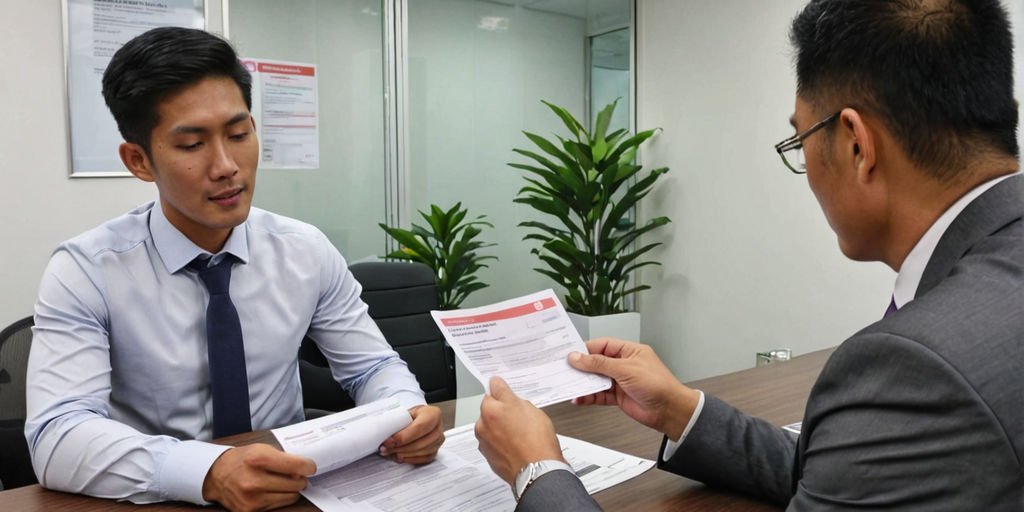
If you are planning to take out a loan for a private property in Singapore, you should be aware of the government regulations and cooling measures that affect the maximum loan tenure and borrowing limits. These measures are put in place by the Monetary Authority of Singapore (MAS) to ensure a stable and sustainable property market.
LTV Limits and Borrowing Caps
One of the key measures is the loan-to-value (LTV) limit, which is the maximum amount you can borrow relative to the value of the property. For private properties, the LTV limit is currently set at 75% for the first loan, and 45% for subsequent loans. This means that you will need to pay at least 25% of the property’s value as a down payment, and you can only borrow up to 75% of the property’s value.
The maximum loan tenure for private properties is capped at 35 years, which means that you will need to pay off your loan within this period. However, if you are taking out a loan for a property with an advance residency longer than 30 years, the maximum loan tenure could be marked down to 55% of its initial property asking price.
Additional Buyer’s Stamp Duty (ABSD) and Other Taxes
In addition to the LTV limits and borrowing caps, the government has also implemented additional taxes and duties to cool the property market. One of these measures is the Additional Buyer’s Stamp Duty (ABSD), which is a tax imposed on buyers purchasing a second or subsequent residential property. The ABSD rates vary depending on the buyer’s residency status and the number of properties they already own.
Other taxes and duties that you should be aware of include the Seller’s Stamp Duty (SSD), which is a tax imposed on sellers who sell their property within a certain period of time, and the Goods and Services Tax (GST), which is a tax on the sale and lease of property.
Overall, it is important to stay up-to-date with the latest government regulations and cooling measures to ensure that you are making informed decisions when it comes to borrowing for a private property in Singapore.
Types of Properties and Financing

Are you planning to buy a private property in Singapore? If yes, then you need to be aware of the different types of properties and financing options available to you. This will help you make an informed decision and choose the best property and financing option that suits your needs.
Private Housing Options
There are different types of private properties available in Singapore, including condominiums, bungalows, and landed properties. Condominiums are the most popular private housing option in Singapore, followed by bungalows and landed properties. Condominiums are usually more affordable compared to bungalows and landed properties.
Executive condominiums (ECs) are also a popular private housing option in Singapore. They are a hybrid of public and private housing and are designed for the middle-income group. ECs are subject to certain restrictions, such as a minimum occupation period (MOP) of five years before they can be sold in the open market.
Financial Institutions and Home Loans
When it comes to financing your private property purchase, you have several options available to you. You can choose to take a bank loan or a housing loan from a financial institution. Most financial institutions in Singapore offer housing loans with a maximum loan tenure of 35 years for private properties [1].
Before you apply for a home loan, it is important to do your research and compare the interest rates and loan packages offered by different financial institutions. You should also consider factors such as the loan tenure, repayment period, and the total amount of interest payable.
In conclusion, understanding the different types of private housing options and financing options available to you is crucial when buying a private property in Singapore. Do your research and choose the best option that suits your needs and budget.
CPF Usage and Government Grants
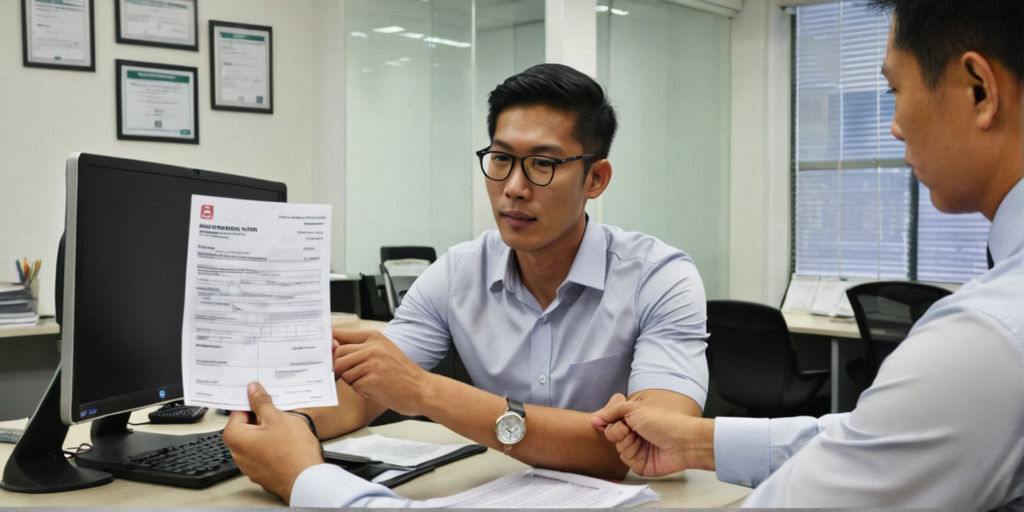
If you are planning to purchase a private property in Singapore, you can use your CPF savings to fund your down payment and monthly loan repayments. Additionally, you may also be eligible for CPF Housing Grants and Government Grants.
CPF Housing Grant Eligibility
To be eligible for CPF Housing Grants, you must meet the following criteria:
- You must be a first-time buyer.
- You must be a Singapore Citizen or a Permanent Resident.
- Your average gross monthly household income must not exceed $14,000.
- You must not own any other property in Singapore or overseas.
The amount of CPF Housing Grant you can receive depends on your income and the type of property you are purchasing. For example, if you are buying a resale flat, you may be eligible for up to $160,000 in grants.
Using CPF for Downpayment and Loan Repayments
You can use your CPF savings to fund up to 15% of the purchase price of your private property. The remaining 85% can be financed with a bank loan.
However, you should note that there is a Minimum Occupancy Period (MOP) of 5 years for private properties. During this period, you cannot sell or rent out your property. If you do, you will have to refund the CPF savings used for your down payment and monthly loan repayments, with interest.
After the MOP, you can choose to continue using your CPF savings to service your monthly loan repayments, subject to the CPF withdrawal limits. The CPF withdrawal limits are as follows:
- For properties with a remaining lease of 60 years or more, you can withdraw up to 120% of the Valuation Limit (VL) of your property with a bank loan.
- For properties with a remaining lease of less than 60 years, you can withdraw up to the VL of your property with a bank loan.
In conclusion, using your CPF savings and Government Grants can help you finance your private property purchase in Singapore. However, you should ensure that you meet the eligibility criteria and understand the MOP and CPF withdrawal limits before making any decisions.
Joint Borrower and Co-Signing Strategies
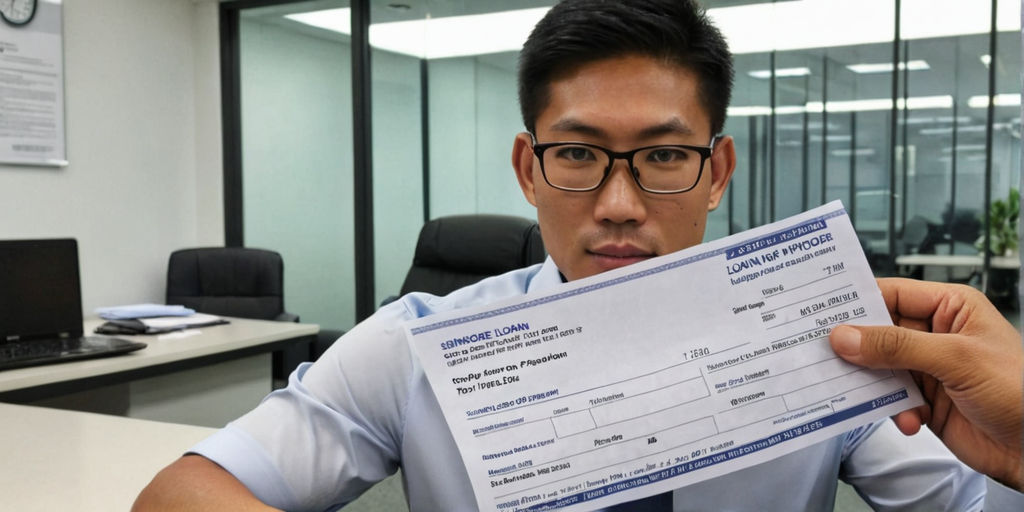
If you’re struggling to secure a mortgage because of your age or financial situation, a joint borrower agreement might be the solution. This type of agreement involves two or more borrowers applying for a mortgage together, sharing the responsibility for the loan.
Joint Borrower Agreements
A joint borrower agreement can be useful if one borrower has a lower credit score or income. This is because the other borrower can provide additional security, making it more likely that the mortgage application will be approved. Additionally, joint borrowers can combine their incomes to increase the amount they are able to borrow.
However, it’s important to note that all borrowers are equally responsible for the loan, regardless of their individual contributions. This means that if one borrower is unable to make their payments, the other borrowers will be responsible for covering the shortfall.
Mortgage Sharing and Co-Signing Benefits
Another option is mortgage sharing or co-signing. This involves two or more people sharing the cost of a mortgage, with each person owning a portion of the property. This can be useful if one person is unable to afford the entire mortgage on their own.
Co-signing can also be a good option if one borrower has a low credit score. The co-signer can provide additional security, making it more likely that the mortgage application will be approved. However, it’s important to note that the co-signer is equally responsible for the loan and may be required to make payments if the borrower is unable to do so.
When considering a joint borrower or co-signing strategy, it’s important to consider the potential risks and benefits. You should also consider the mortgage rate and any rebates that may be available. It’s important to speak with a financial advisor or mortgage broker to determine which option is best for your situation.
Frequently Asked Questions

What’s the longest repayment period available for private property mortgages in Singapore?
The longest repayment period available for private property mortgages in Singapore is 30 years or until you reach the age of 65, whichever is earlier. This means that if you’re 40 years old and looking to secure a 75% loan-to-value ratio (LTV), the longest repayment period you can get is 25 years.
Up to what age can one secure a mortgage for private housing in the Lion City?
You can secure a mortgage for private housing in Singapore up to the age of 75. However, the maximum loan tenure will be capped at 30 years or until you reach the age of 65, whichever is earlier.
How does the loan-to-value ratio affect my property loan duration in Singapore?
The loan-to-value (LTV) ratio is the amount of money you can borrow against the value of the property you want to purchase. In Singapore, the maximum LTV ratio is 75% for private properties. The LTV ratio affects your property loan duration in Singapore because the higher the LTV ratio, the shorter the maximum loan tenure. This means that if you want to secure a longer loan tenure, you’ll need to put down a larger down payment.
What’s the maximum duration a bank can extend for a private property loan?
The maximum duration a bank can extend for a private property loan in Singapore is 30 years or until you reach the age of 65, whichever is earlier. However, the actual loan tenure you can get will depend on your age, income, and creditworthiness.
Can you tell me the absolute limit for a mortgage loan tenure in Singapore?
The absolute limit for a mortgage loan tenure in Singapore is 35 years for private properties. This means that if you’re looking to purchase a private property, the longest repayment period you can get is 35 years or until you reach the age of 75, whichever is earlier.
Is there a different maximum loan period for HDB compared to private properties?
Yes, there is a different maximum loan period for HDB compared to private properties. According to the Monetary Authority of Singapore (MAS), the maximum loan tenure for HDB flats is capped at 30 years, while for non-HDB properties, it’s capped at 35 years.

